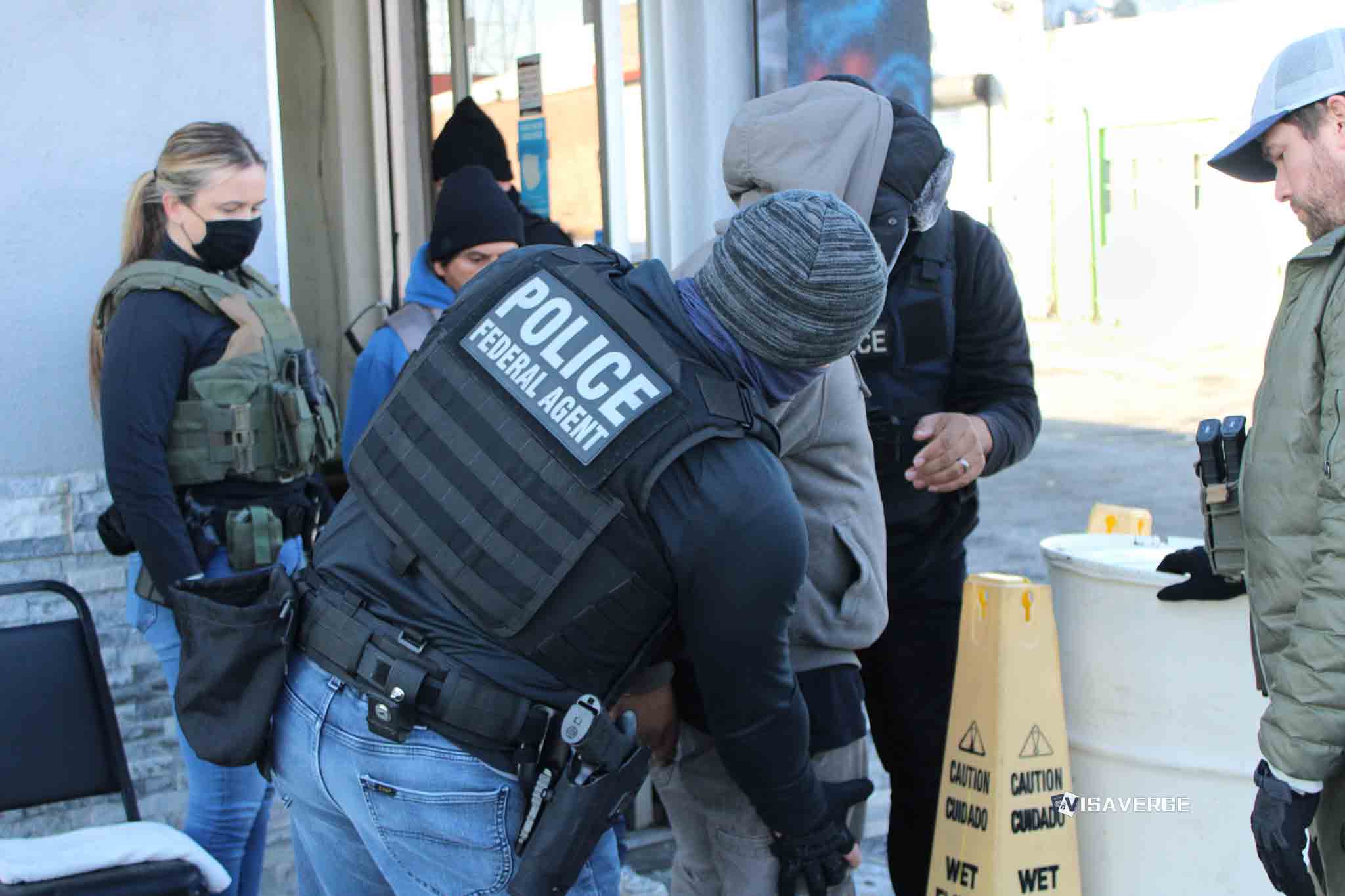Key Takeaways
• TPS for Afghanistan ends July 12, 2025, affecting about 14,600 Afghans and risking over 9,000 deportations.
• Trump administration welcomed 59 Afrikaner refugees, fast-tracking their entry under an executive order citing racial discrimination.
• Critics highlight unequal treatment, with Afrikaners prioritized while Afghan Asylum Seekers lose critical protections despite ongoing risks.
On May 12, 2025, United States 🇺🇸 immigration policy made headlines again, sparking heated debate and concern among refugee advocates. The Trump administration welcomed 59 white South African Afrikaners as refugees, while at the same time, it announced it would end Temporary Protected Status for about 14,600 Afghan refugees. This decision shows a sharp difference in how two groups—Afghan Asylum Seekers and Afrikaners—are treated under new immigration rules, leaving thousands of people anxious about their future.
A Sudden Change in Afghan Asylum Policy

The Department of Homeland Security (DHS) made its announcement clear: Temporary Protected Status (or TPS) for Afghanistan—a program that lets people from unstable countries remain in the United States 🇺🇸—will expire on May 20, 2025. By July 12, 2025, all protection under this program comes to an end. Secretary Kristi Noem explained that this is a move to “return TPS to its original temporary intent.” She added that conditions in Afghanistan had “notable improvements in the security and economic situation,” and that the country no longer fits the TPS rules.
This marks a big shift from earlier policy. In May 2022, after the U.S. withdrew from Afghanistan and the Taliban took control, the Biden administration introduced or extended TPS status for Afghans, arguing they faced danger if sent home. Those protections stayed in place through 2023. But now, a different administration is cutting off TPS, leaving more than 9,000 Afghans at risk of being sent back to a country many still see as unsafe.
Afrikaners Fast-Tracked for Refugee Status
While Afghan Asylum Seekers face uncertainty, the Trump administration made it easier for a different group: Afrikaners. The government welcomed 59 of these white South Africans to Virginia on May 12, 2025, and the State Department announced that more are coming soon. This fast-track program for Afrikaners comes from President Trump’s executive order, “Addressing Egregious Actions of the Republic of South Africa,” signed in February 2025.
This order said that Afrikaners needed urgent help as “victims of unjust racial discrimination.” President Trump described the situation as a “genocide,” claiming that Afrikaner farmers were being killed, and their land taken from them. As a result, U.S. immigration agencies hurried to get Afrikaner refugees into the country in just months—far faster than the usual multi-year wait for most refugee groups.
Looking at the Two Approaches Side by Side
The difference between these two groups’ treatment is clear. For Afrikaners, the process was smooth and quick; for Afghan Asylum Seekers, it has become more difficult than ever. As reported by VisaVerge.com, this has fueled public outcry, as both groups had fled violence but only one was given special attention under the new refugee policies.
Why Was TPS for Afghanistan Ended?
According to DHS, the decision to end TPS for Afghanistan rests on two main arguments:
- The belief that security in Afghanistan has improved.
- The idea that Temporary Protected Status should only be temporary, not a long-term solution for those in danger.
Secretary Noem stressed the importance of staying faithful to the original meaning of “temporary” in TPS. However, critics say this ignores on-the-ground reports that many Afghans, especially women, minorities, and those who worked with the prior U.S.-backed government, still face real threats if forced to return.
What Led to Afrikaners Getting Priority?
President Trump and his team argued that Afrikaners are victims of “unfair discrimination” due to their race. The administration said that a “genocide” against white farmers was under way in South Africa 🇿🇦 and that the United States 🇺🇸 had a duty to help these people immediately.
But critics and observers point out that these claims are disputed even in South Africa 🇿🇦. A court there in February 2025 ruled that there is no “white genocide,” and South African President Cyril Ramaphosa said that there is no persecution happening at all.
Criticism and Debate Over U.S. Policy
The Trump administration’s choices sparked immediate criticism from lawmakers, advocacy groups, and international observers.
Double Standards?
Many accuse the administration of a double standard. Critics say that fast-tracking Afrikaners while ending protections for Afghan Asylum Seekers is unfair, especially since many Afghans are known to face worse dangers if forced to return.
Senator Jeanne Shaheen called it “baffling” and “politically motivated” to allow Afrikaners in over Afghans, Burmese Rohingya, and Sudanese refugees, all of whom she believes are in serious need of protection.
Are the Claims About Afrikaner Persecution True?
The main reason for the Afrikaner resettlement was concern about a so-called “genocide.” However, a South African court found that these claims are untrue. South African President Ramaphosa and his government deny that Afrikaners are facing any unusual threat.
Is Race Involved in This Policy Shift?
Senator Chris Van Hollen and many others think so. He called it “an application of a global apartheid policy,” arguing that the administration is responding mostly to white racial concerns. Some believe this new policy is based on the racial politics of a part of the American far right, rather than on objective need.
Fast-Tracking One Group Over Others
Another point of contention is the speed with which Afrikaners were welcomed. Most refugees wait years for approval and resettlement. Yet, Afrikaners made it to the United States 🇺🇸 in just months. Meanwhile, tens of thousands of other approved refugees, many from war zones or at high risk, remain in third countries waiting for permission to enter—even with court orders saying they should be allowed in.
How Are Afghan Asylum Seekers Affected?
For Afghan Asylum Seekers, the canceling of TPS means more than lost paperwork; it could put their safety in danger. With more than 9,000 Afghans now facing possible deportation, advocacy groups are calling the new policy “unconscionable.” Many Afghans have families and jobs here. Others risk being killed or punished for helping American or allied forces during the war.
The charity group CASA filed a lawsuit to stop the termination, arguing that Afghanistan is still dangerous for returned refugees. However, the Trump administration claims that it is safe for them to go back.
If you want to learn more about Temporary Protected Status and who qualifies, you can visit the USCIS TPS page.
The Future for Afghan Asylum Seekers
The ending of TPS does not just affect paperwork or status; it touches families, children, and entire communities who have made lives in the United States 🇺🇸. Many do not know where to turn. For some, the situation is even worse because they had applied for asylum and been denied or were waiting for a decision. For others, it means fear of being sent to a place where violence and poverty, by many accounts, have not truly slowed down.
Refugee organizations warn that removing protections now ignores the risk for women and girls, ethnic and religious minorities, and people who worked with the United States 🇺🇸 during the war. The Taliban’s control has led to new rules that, according to these advocates, have made life harder for those who don’t share its views or practices.
What Does This Mean for U.S. Immigration Policy?
This moment is a test for the United States 🇺🇸 and its role as a leader in helping those in danger around the world. Many see the abrupt end to Afghan TPS—and the swift welcome for Afrikaners— as more than a difference in policy, but as a symbol of deeper questions. These include:
- Who gets protected, and why?
- Are decisions based on need, race, political pressure, or something else?
- How can the United States 🇺🇸 balance safety and fairness in a world of changing dangers?
The Broader Community: Mixed Reactions
Communities around the United States 🇺🇸 are responding in different ways. Some support the decision to help Afrikaners, viewing it as long overdue in response to claims of anti-white violence in South Africa 🇿🇦. Others are deeply troubled that so many Afghan Asylum Seekers—many of whom worked side-by-side with American service members—are being overlooked and possibly forced to return home.
Immigrant advocacy groups have organized rallies, spoken to lawmakers, and filed legal challenges. They also warn that ending TPS for Afghans could damage America’s reputation as a safe haven for people in need.
The Debate Goes On
Questions remain about the true safety in Afghanistan, especially following the Taliban’s takeover. While the Department of Homeland Security points to “notable improvements,” news reports and human rights groups often describe the situation as still unsafe. Many critics say that the administration’s claims do not match the daily reality for women, children, and minorities in Afghanistan.
At the same time, the claims of “white genocide” that fueled the Afrikaner resettlement policy have been challenged by courts and government leaders in South Africa 🇿🇦 itself. This raises the question: If neither group is entirely safe— or if the risks of return are at least similar—why does one get special help and the other faces deportation?
Conclusion: What Could Happen Next?
The sharp policy difference between Afghan Asylum Seekers and Afrikaners is far from settled. While the Trump administration frames these decisions as a return to law and a response to humanitarian crises from South Africa 🇿🇦, others see them as inconsistent and perhaps unfair.
With court cases like the one filed by CASA now in progress, the outcome for thousands of Afghans in the United States 🇺🇸 remains uncertain. For Afrikaners, the path appears open, at least for now.
What is clear is that U.S. immigration policy is at a crossroads. The choices made now will affect not only the lives of today’s refugees, but also how the United States 🇺🇸 is seen by the world in its ongoing role as a place of hope for those in danger.
For direct information about asylum, Temporary Protected Status, or other humanitarian immigration options, readers can visit the official USCIS Humanitarian page.
VisaVerge.com’s investigation reveals these new policies highlight the deep debates over fairness, race, and humanitarian duty at the heart of global refugee protection. As changes unfold, thousands around the world are watching— and waiting to see which direction the United States 🇺🇸 will go next.
Learn Today
Temporary Protected Status (TPS) → A U.S. immigration status allowing people from unsafe countries to live and work temporarily without fear of deportation.
Afghan Asylum Seekers → Individuals from Afghanistan seeking refuge in the U.S. due to ongoing violence, persecution, or political instability in their home country.
Afrikaners → A white South African ethnic group mainly descended from Dutch settlers, increasingly discussed in international refugee contexts.
Deportation → The forced removal of non-citizens from the U.S. following the loss of legal immigration status or protections.
Executive Order → A legally binding directive issued by the U.S. President to manage operations of the federal government, often shaping immigration policy.
This Article in a Nutshell
U.S. immigration took a sharp turn in May 2025. The government cut protections for over 14,000 Afghan refugees, risking their deportation. At the same time, authorities fast-tracked Afrikaner resettlement. Critics decry the policy as racially and politically motivated, insisting fairness and humanitarian need should guide refugee admissions.
— By VisaVerge.com
Read more:
• Trump Administration Picks Afrikaners Over Other Refugees
• Afrikaners Flee South Africa Under Trump Administration Order
• Trump invites white Afrikaners to seek asylum in the United States
• Afrikaners Taking Donald Trump’s Refugee Offer Can Keep South African Citizenship
• Kevin O’Leary Defends Refugee Status for White South Africans













